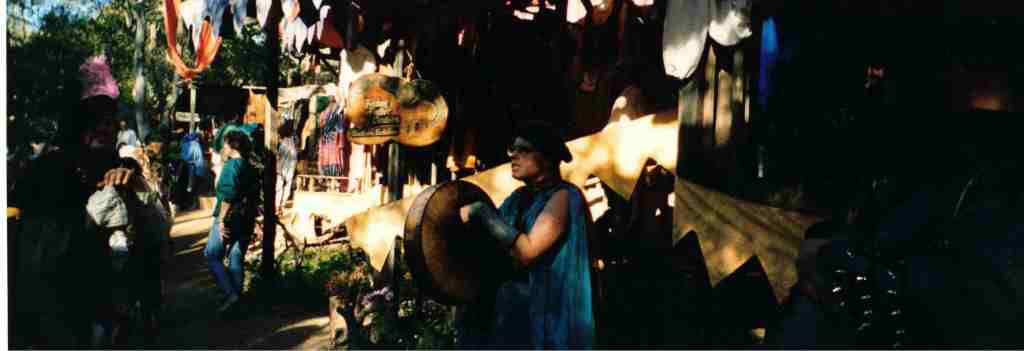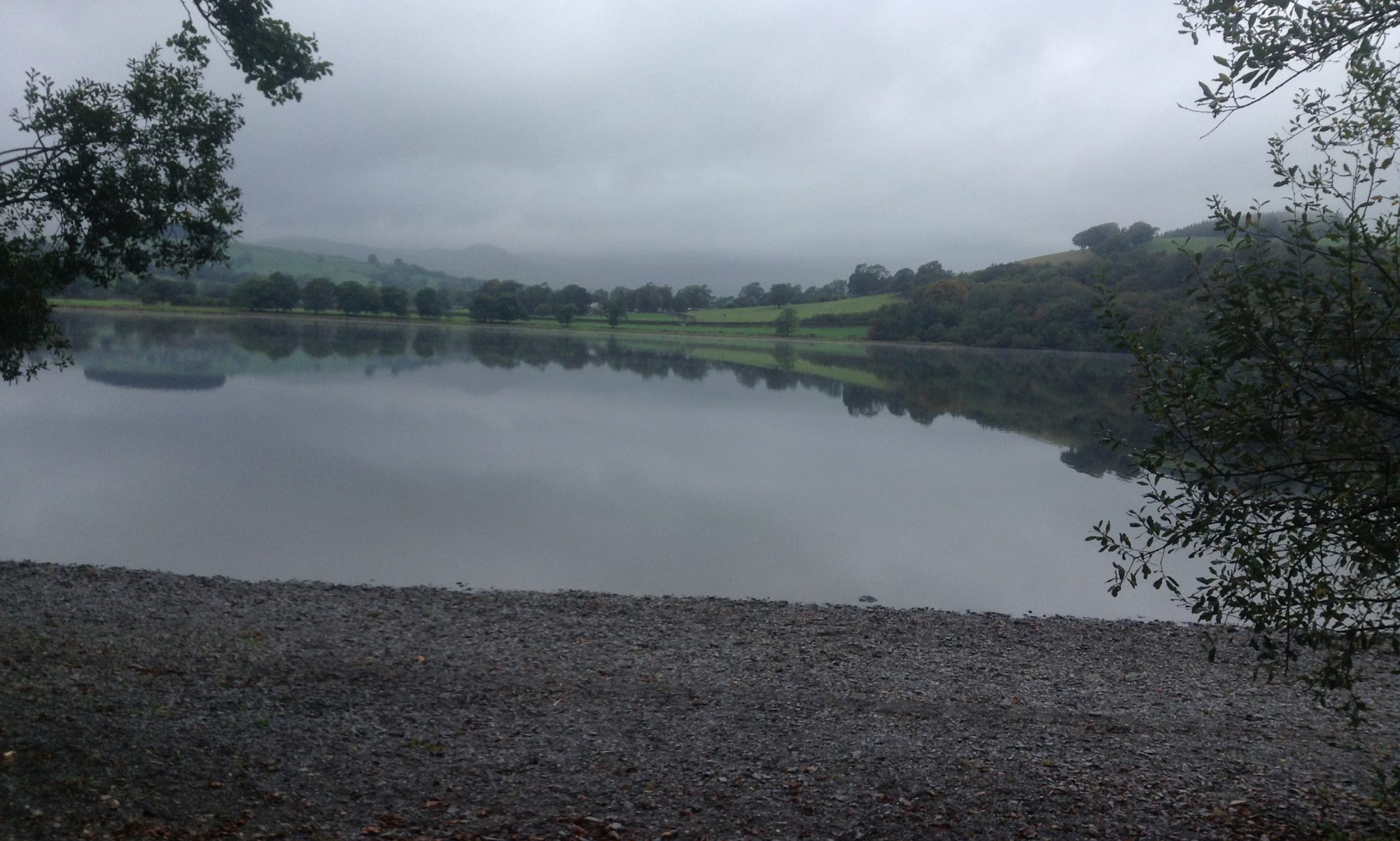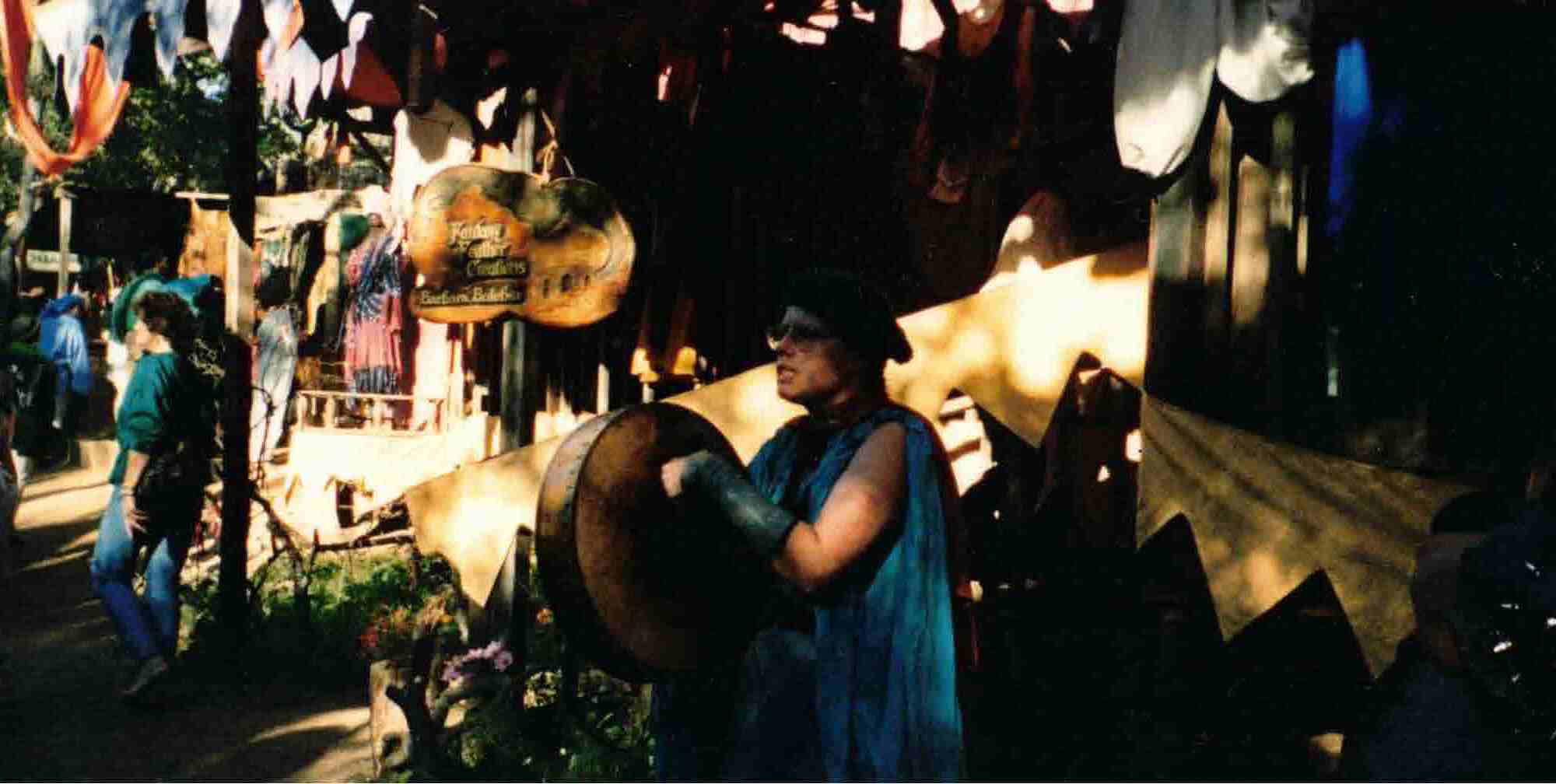
We spent a lot of time last weekend looking at our old photos of Faire, and topped it off with videos on YouTube. The videos in particular reminded me of the shape of the illusion we all created. While it is true that LHC made the playground, we made the Faire.
Over my desk there’s a collage of images. They cover much more than Faire. In the center is a woman made of branches, her heart of fire green in her breast and her face uplifted to the sky among her leaves. An enhanced computer image of Long Meg, with all her cup-and-ring decorations towers over her, scarred by the passage of time and floating in a black background. My backpack, outer clothing and bodhran case are grouped around a tree on the shore of Llyn Tegid, in Wales, but the image I look to now is of myself, bodhran in hand, in leine and wool bonnet in Witches Wood, at Black Point.
Back then things were far from perfect, but I walked into another time and place every morning. My bodhran and basket were on my back and the day was there for the living. I started my journey as a matter of fact, the same way I started my day at Dickens, with a cup of Chai at the Mullah’s and conversation with good friends. Kenny Millikan might regale us with the tale of the Dawn Haggis, a creature we could only glimpse in his words. He had a jar of soft sculpture backsides, which he swore were pixie butts. The Pixie would take up the story at this point, telling us how they fell off in the fall, and that each Pixie had a special dance that sent them flying.
We carried stories like this into the streets and told them to Travellers. Some embellished them further or spun off wild tales of their own. There were a pair of Celts who came to Faire every year and found me busking on the streets. They would persuade me to take a trip to an alestand with them, and we would roar through the Faire. I would drop off after a while to play another set, and let them continue their colorful ramble through the playground they visited once a year. You may remember them, or you may not, for they were an ornament to the time and place we all created together, and while they were the very picture of uproarious revellers, they never, to my knowledge, caused a problem. Would they be welcome today? I don’t know. They chose their level of participation, and had complete freedom on the day per year they chose. They would not have been out of place backstage, though of course they were never seen there. Some lines, it has been made quite clear to me, are not to be crossed.
As a busker, I walked until I was tired, kept my tankard full of water when I played–both singer and bodhran found song a thirsty business–and told tales in rhyme to the beat of the drum. I stopped when asked, as some of the vendors would want me to grace the area around their booths with my music, and also when the Faire beckoned. While I had specific places I favored for a set, I was not in any one of them for longer than an hour or so. I made it a point to never repeat a song within a set lest I cease to please and begin to grate on those whose trade kept them in one place.
To me, that endless round through the streets is now missing. Every nook and cranny is filled with a booth or a stage, and there is nowhere to stop without stepping on the perfectly timed shows. Performers run from one to another, rarely stopping to play in streets too small to build a world in! We are watched, and our flaws marked. While there do of course have to be certain standards, we are no longer trusted to want to uphold them, not because they render a world deeper and more colorful than the one we return to after the last chorus is sung, but because we have people working to reveal our flaws instead of praising our glories.
There are still good times to be had, and bright spots in days growing ever longer, but as a busker I have been chased from these streets. I am no longer Jeremy’s messenger, part of the web of the underworld of London. While I miss Roisin, or Lucy, as she was called in London, I take heart in the knowledge that Jeremy’s girls were only a temporary shelter for her. In the end she did manage to join her family in America where they fled from An Gorta Mor. Perhaps Lucy’s story will fork, as did Jeremy’s and Jenny’s. Perhaps not. The characters I played never were wholly confined to the Faire. They came from somewhere, and kept going after it was over. Knowing who they were and in the end where they went was a part of their living presence on the streets, and the memory they leave for me when they move on.



